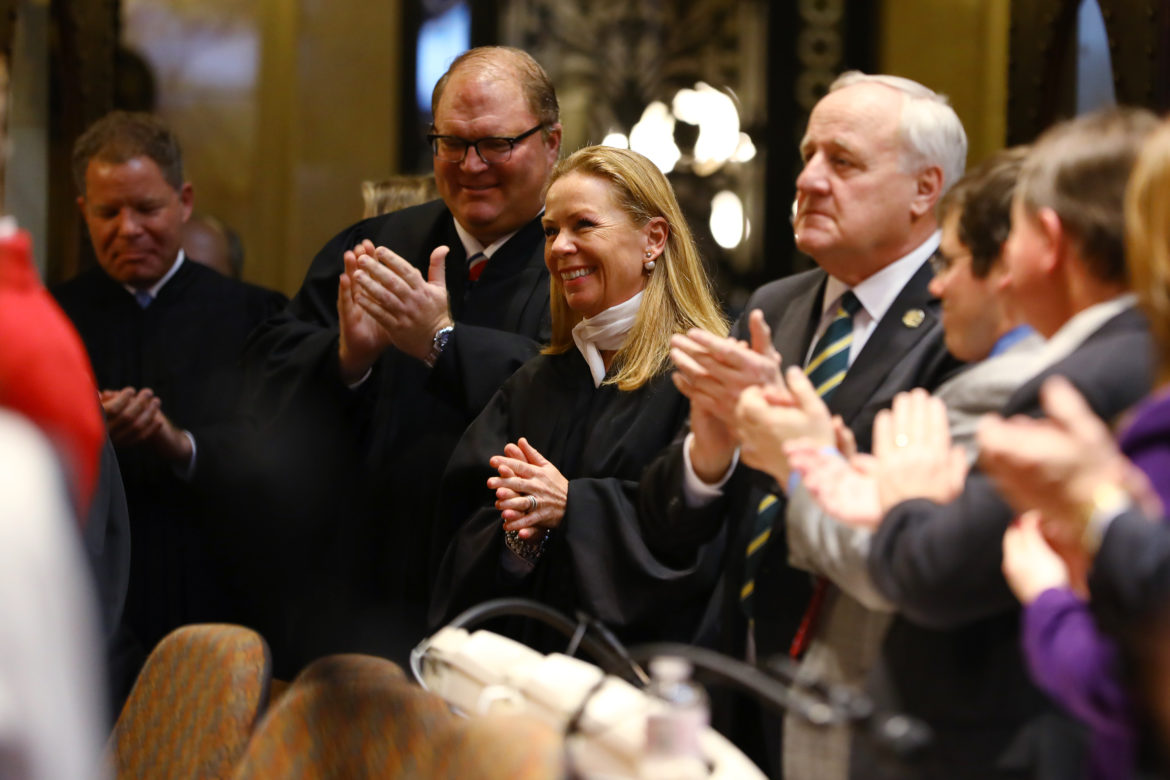Shadowy Business Courts Corrupt Justice System
Business Court project creates two-tiered justice system. But it's not too late to end it.

Wisconsin Supreme Court Justice Annette Ziegler. Photo by Coburn Dukehart/Wisconsin Center for Investigative Journalism.
Anyone who doubts that secrecy in government breeds poor public policy should take a look at the Business Court Pilot Project launched by our Wisconsin Supreme Court.
For the last five years, the project has granted large commercial interests outsized influence over our court system’s handling of their cases, exactly as intended. The business court pilot debuted in 2017 in Waukesha County and the 8th judicial district (encompassing Brown, Marinette, Kewaunee, Oconto, Door, Outagamie and Waupaca Counties). It was expanded to other districts and, in a surprise move, to Dane County in 2020.
The process largely bypasses the voter-controlled and otherwise random judicial assignment of cases. It creates a two-tiered court system — one controlled by business interests and one for everybody else.
It began in September 2016, when then-Chief Justice Patience Roggensack formed the “Business Court Advisory Committee” to develop a specialty court proposed by big business, for big business. Ignoring the Supreme Court’s own internal operating procedures designed to promote transparency and diversity of opinion in appointing court committees, the chief justice stacked the committee with lawyers representing business interests.
The committee included no labor or consumer advocates, no one representing the viewpoints of the public, and no one speaking for other stakeholders in our circuit court system.
Working privately, the advisory committee soon hatched a petition to establish and control the business court, which it filed with the Supreme Court on October 26, 2016. Less than two weeks later, the court adopted the petition by a 5-2 vote, with no public hearing, no opportunity for public comment, and no public notice that the petition was even scheduled for a vote.
The business court model was forced on to the Dane County circuit court system beginning in July 2020. The Supreme Court is now weighing a petition to extend the pilot program, set to expire on June 30, 2022, for another two years.
The big business takeover of circuit court commercial litigation wasn’t the first time our Supreme Court displayed a penchant for secrecy.
For example, in 2012, the Supreme Court majority voted to close administrative rules conferences to the public, reversing an open meetings policy that had informed Wisconsin voters on important court matters for years. “To sit out here in public and philosophize,” said then-Justice Roggensack,”is really not the best use of our time.
A more transparent approach might have led to a different outcome on the Business Court pilot project. But it’s not too late to comment on the request to expand the project for another two years. Written comments can be submitted to Attorney Laura Brenner at lbrenner@reinhartlaw.com, and should be received by 4:30 p.m. on April 8.
This time, transparency may produce a better result—a return to normalcy for our courts.
Your Right to Know is a monthly column distributed by the Wisconsin Freedom of Information Council (wisfoic.org), a group dedicated to open government. Attorney Richard G. Niess served as a Dane County Circuit Court judge from 2004 -2020, including 13 years as presiding judge of the civil division.
If you think stories like this are important, become a member of Urban Milwaukee and help support real, independent journalism. Plus you get some cool added benefits.
Your Right to Know
-
‘Open’ Records Often Missing Names
 Dec 2nd, 2025 by Bennet Goldstein
Dec 2nd, 2025 by Bennet Goldstein
-
Data Center Secrecy Is Unacceptable
 Nov 4th, 2025 by Tom Content
Nov 4th, 2025 by Tom Content
-
Costs Shouldn’t Be Used To Deter Records Requests
 Oct 6th, 2025 by Mark Treinen
Oct 6th, 2025 by Mark Treinen





















